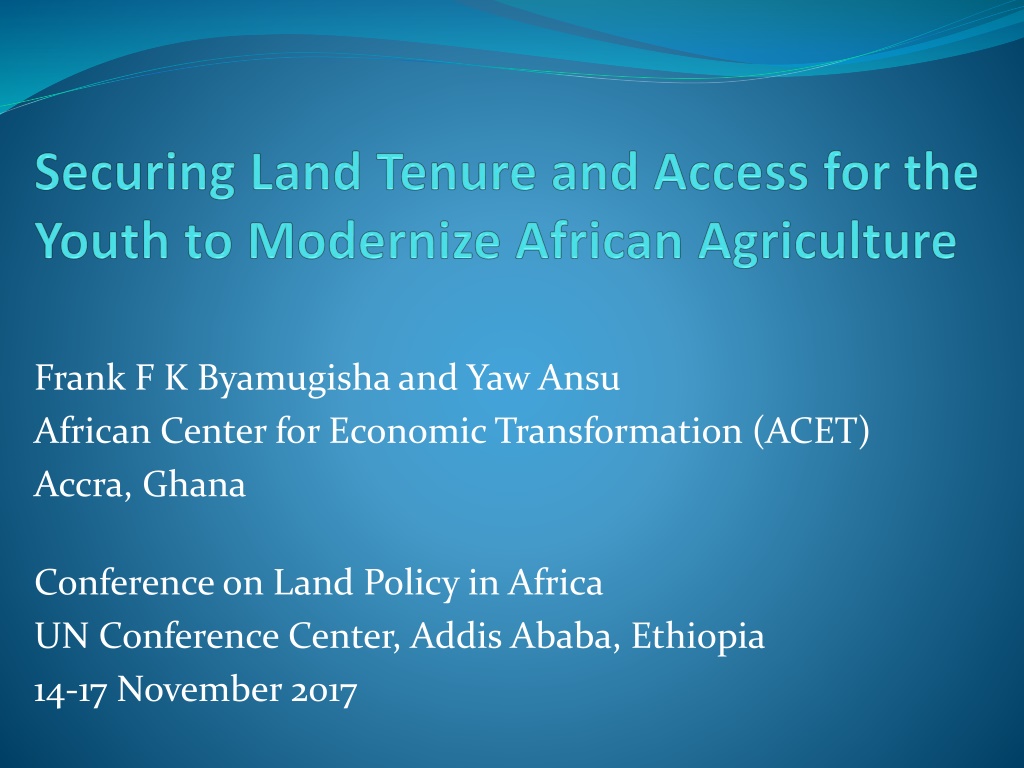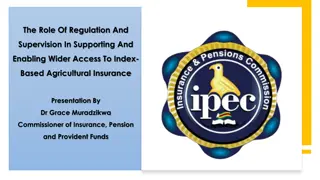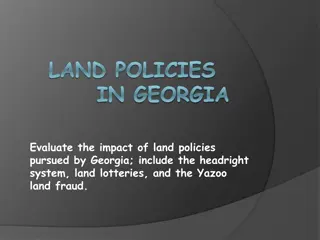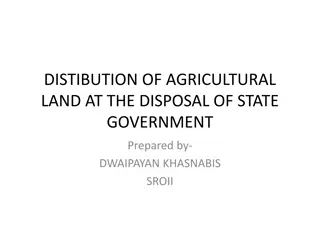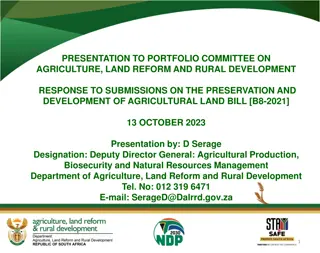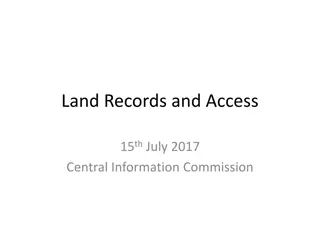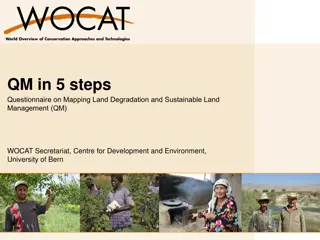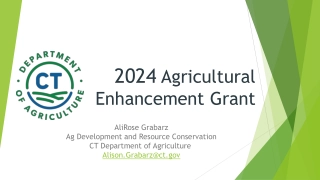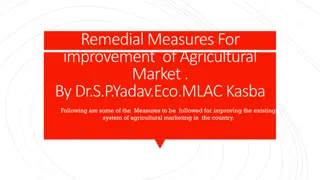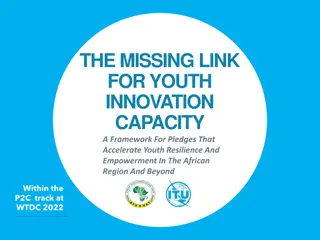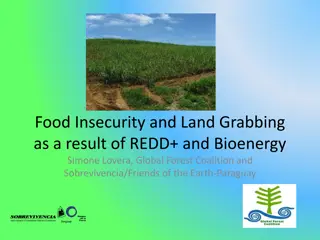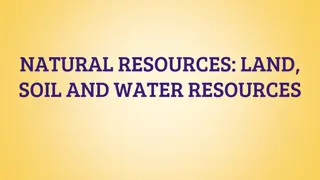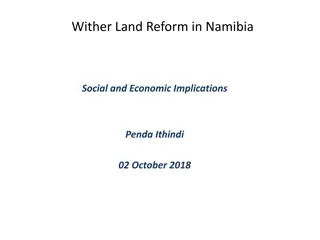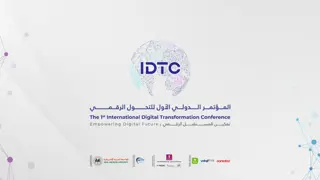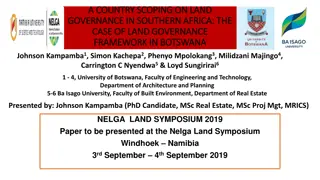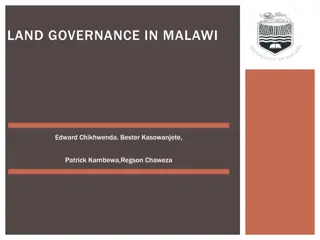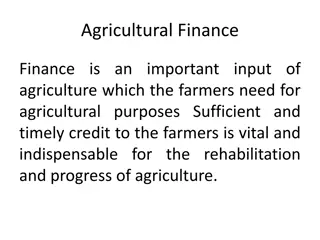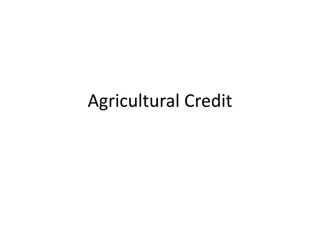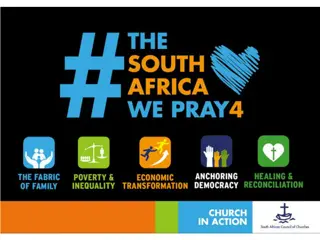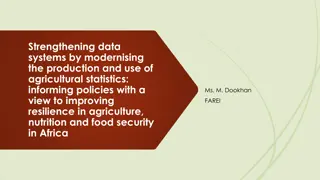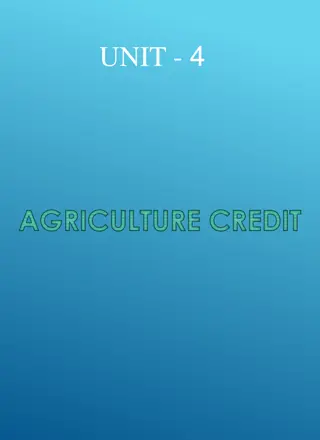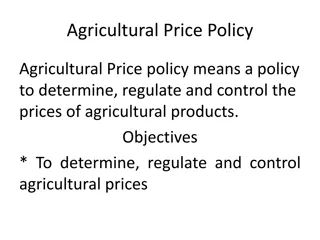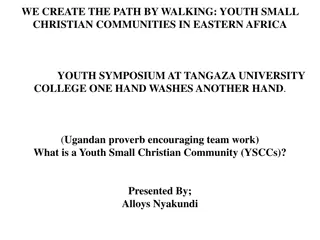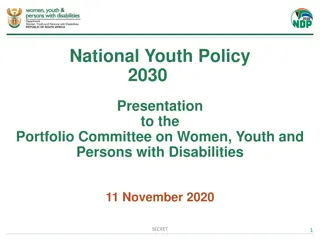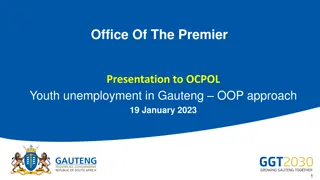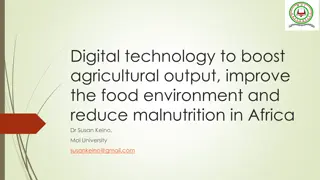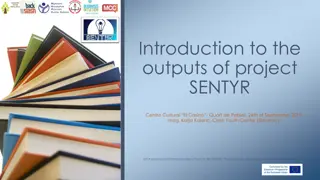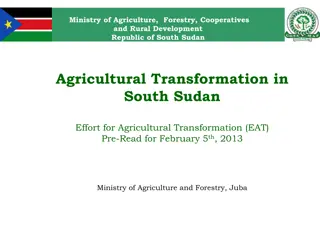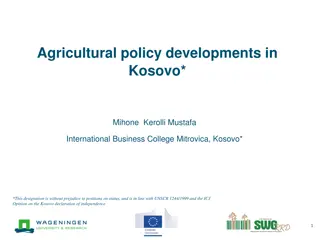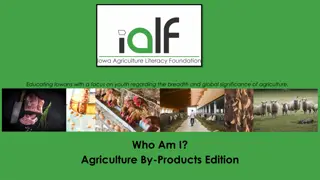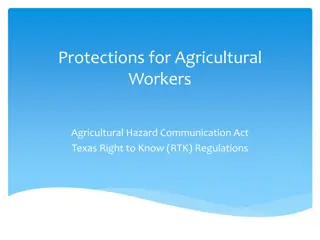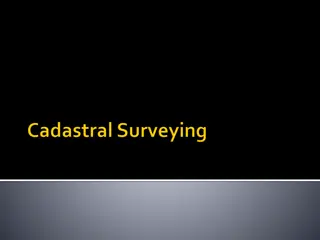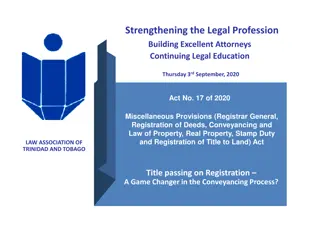Enhancing Youth Access to Land for Agricultural Transformation in Africa
Agriculture in Africa can drive economic transformation by engaging the youth, who face challenges in accessing land due to customary practices, limited opportunities, and marginalization. Policy actions such as market-improving strategies can address these obstacles and promote access to land, credit, and entrepreneurship for the youth.
Download Presentation

Please find below an Image/Link to download the presentation.
The content on the website is provided AS IS for your information and personal use only. It may not be sold, licensed, or shared on other websites without obtaining consent from the author. Download presentation by click this link. If you encounter any issues during the download, it is possible that the publisher has removed the file from their server.
E N D
Presentation Transcript
Frank F K Byamugisha and Yaw Ansu African Center for Economic Transformation (ACET) Accra, Ghana Conference on Land Policy in Africa UN Conference Center, Addis Ababa, Ethiopia 14-17 November 2017
Outline Introduction Challenges to youth access to land Opportunities to accessing land Policy Actions to overcome the challenges Conclusions
Introduction Agriculture can lead Africa s economic transformation if, among other things, it is modernized to attract the youth (ACET 2017), who are: More educated to handle modern technology & entrepreneurship; Predominant & energetic the under 24 make up 60% of total population; and Key to replenishing the ageing farming population But the youth have limited access to land; hence: No land to farm; and No collateral for loans to do farming as a business
Challenges to Accessing Land Customary tenure and customary practices largely communal & biased against youth, girls & young women Over-reliance on inheritance: Unpredictable & offers limited choices Poorly developed sales and rental markets Lack of resources to buy or rent land Limited legal protection and access to information on their land rights Marginalized in land reform programs
Opportunities to Accessing Land Surplus arable land Potential to increase employment & incomes Potential to replenish ageing farming population (average age is 60) with educated youth
Policy Actions to Overcome Challenges Objective - Provide access to land, credit & entrepreneurial skills Policy Menu: Market-Improving (land sales & rental) Market based (land & credit markets) Government-based (state-owned & controlled land)
Market-Improving Policy Actions - To Improve Market Access and Transparency (ACET 2017) Register communal land rights eg. Mexico Register individual land rights eg. Rwanda Develop local land governance institutions to allocate & lease land eg. Botswana, Fiji, Mexico Reduce restrictions on land rental markets eg. China, Viet Nam, Ethiopia Computerize land information systems to reduce transaction costs eg. Rwanda, Uganda Bring idle land into use land tax; infrastructure access; better mechanisms to allocate state lands Strengthen formal and traditional institutions to resolve land disputes Enhance and protect land rights of women
Market-based Policy Actions Augment markets to deliver to Youth No experience in Africa Experience mainly in Latin America with Land Fund Programs for youth, especially: Brazil Mexico
The Brazil Land Fund Program Started 2003 to serve youth WB support of $202m up to 2008, but continued funded by Brazil Gov nt: Commercial loans for land purchase/rental Grants for entrepreneurship training & on- farm group investments World Bank project results: 2,500 youth supported Commercial loan repayment: 97% Economic rate of return: 12.6%
The Mexico Land Fund Program Started in 2004 in ejidos, with WB support of $100m up to 2010, but continued funded by Mexican Gov nt: Initially subsidized loans for land purchase Grants for entrepreneurship training & on-farm group investments Incentives for older farmers (65 plus) to participate in social welfare schemes so as to bequeath inheritance land early (land sales allowed only within community members) WB project results: 4,526 youth received loans for land purchase/rental Land rental was successful; loan purchases declined due to removal of loans subsidies Incentives for early inheritance were successful (80% of land transfers were from farmers aged 65 plus)
Government-based Policy Actions Aim: Transfer state-owned or controlled land: Legal mandate to allocate to youth eg. Ethiopia State-owned land allocation to the youth eg. Senegal under IFAD project State-controlled customary land allocation eg.: Gambia under IFAD project Togo as part of physical planning & allocation These programs are typically small and uncommon due to: Lack of state funds or state land Too costly to provide at scale and sustain as they are normally grants in kind or cash
Conclusions Youth land access challenges are formidable but not insurmountable Pay-off is high employment & income Policy menu for African policy makers: Market-improving policy actions Market-based policy actions Government-based policy actions Specific policy choices will vary depending on country circumstances
